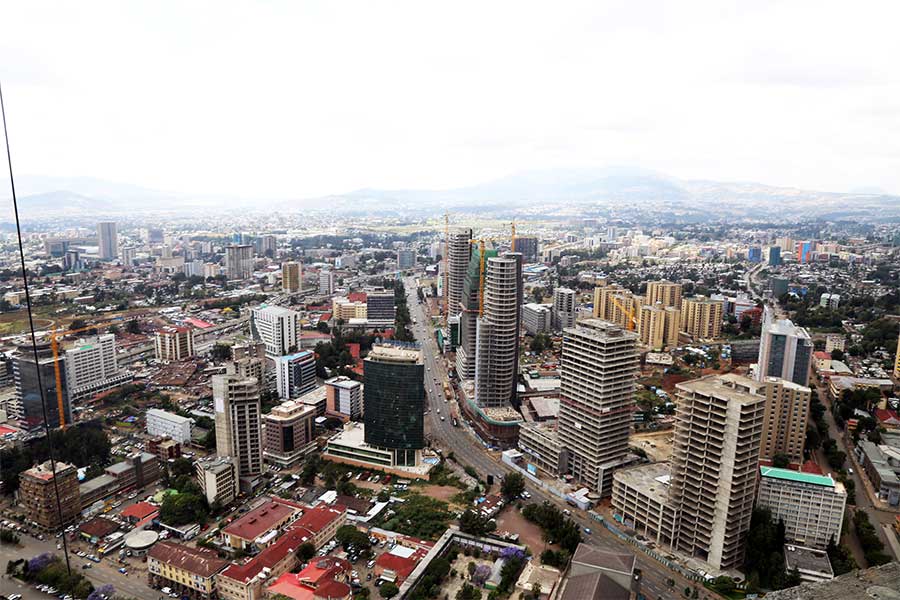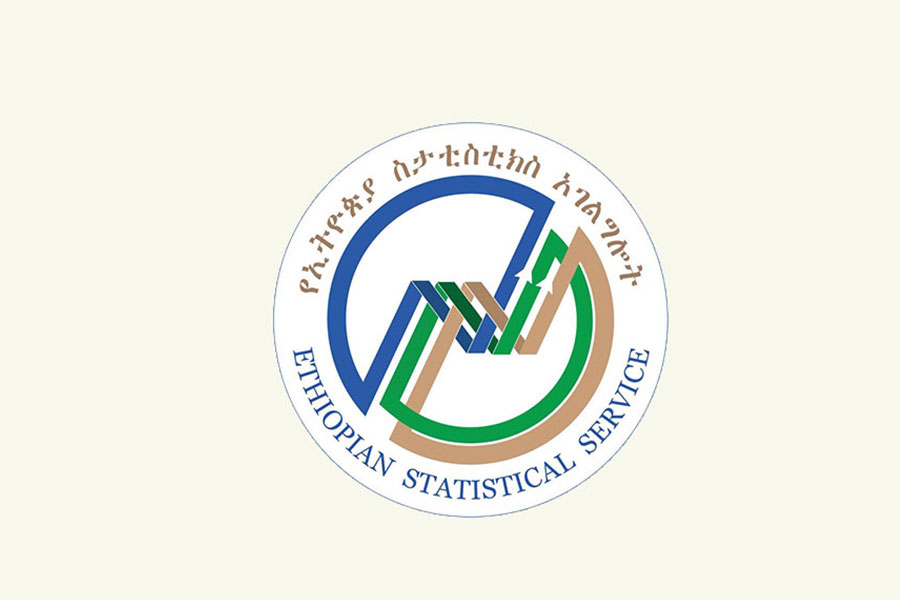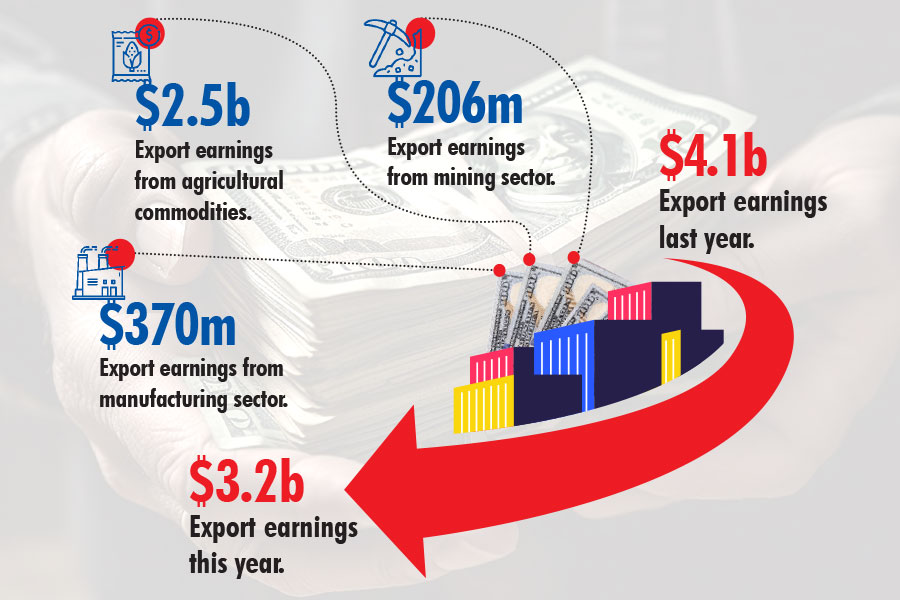
Jul 18 , 2021
By Christian Tesfaye
Over the past two decades, there have been two significant economic challenges that have been a headache for policymakers. One is the foreign currency shortage, which famously led Sufian Ahmed, former Finance Minister, to remark that it would not be addressed in his lifetime. Indeed, as businesses across the country can attest, it is unlikely to be.
The other thorn in the nation’s economy is inflation which, in a good year, would be just double the global rate of about three percent. Currently, it stands at 24.5pc, one of its highest levels in about a decade. The pain is most felt by consumers, unlike businesses that can simply choose to transfer the increase down the chain. But high inflation is not merely putting a burden on people’s consumption. The main pain it exacts is over depreciating the value of their wages and savings. It is an unofficial tax on citizens, and even more so in Ethiopia.
It is possible to survive these times of high inflation. One needs to be smarter with their investments, granted there are not many of them out there as far as Ethiopia is concerned. In most developed countries, inflation becomes an issue when the central bank begins quantitative easing to buy government bonds. It is a fancier, less obvious way of printing money, but it is the same logic. Inflation pokes its head as a result, as it is doing now in the United States.
Most investors will then begin unloading their dollars through currency trading. If each dollar is going to depreciate in value, as its ability to buy goods and services takes a hit, better get rid of it for another currency still holding strong. This is not allowed in Ethiopia, as monetary policy is still pretty tight. The same also goes for investing in cryptocurrencies, which have risen in a few years to become popular investment options.
Another alternative is the stock market, especially on mortgage-backed securities. As in Ethiopia, in times of a depreciating Birr, the values of assets such as houses grow. It is even a good idea to go into debt, or buy debt, to buy a house or some other property such as a car. Vehicles are good investment options in Ethiopia, unlike in the developed world, where the value of cars depreciate over time. Debt is borrowing money now to return it at another time – since the currency is depreciating, a million Birr borrowed now will be worth more in a years time, even with interest rates factored in.
Unfortunately, this will only work for people with large capital. For people who have modest savings, say half a million Birr, it is hard to afford to buy even a car these days. Neither is it possible for such savers to turn to banks for loans – to start a business or buy an asset – as the requirements for getting credit is tied either to collateral or at least having a close relationship with bank executives high up.
What is left then?
The introduction of a capital market is promising for Ethiopia. It requires a lot of work, especially as the ecosystem of brokers and dealers is missing. But it can provide the public with crucial investment options in financial institutions and new start-up listings.
Until then, it is perhaps best to consider investing in certain types of products unlikely to be affected by inflation. Businesses may try and carry the higher costs of sourcing and production, but at some point, they will be forced to transfer them to consumers. This could be bad for the business, but it has all to do with “elasticity.”
Higher prices will hurt hoteliers or restaurants, as they provide luxury services. Importers of, say, packaged spreads such as jam, will also lose demand as there are cheaper local alternatives. These goods and services are elastic in demand.
But consider public transport. Commuters do not stop using them merely because the price has jumped since it is a service that they could not go without for long. They either have to stop going places that are not within walking distance or buy a car. But no one has a problem foregoing a bottle of champagne, thus bad news for liquor stores.
Inflation provides the incentive to look for alternative ways to save money. The worst thing one can do is consume away on dining out or buying that sixth jacket. Much more preferably for modest savers is to invest in a business that specialises in essential goods and services – the sort that people will not stop consuming because it is more expensive than it used to be some time ago.
PUBLISHED ON
Jul 18,2021 [ VOL
22 , NO
1107]


Commentaries | Oct 16,2024

Radar | Nov 11,2023

Commentaries | Nov 25,2023

Editorial | Nov 18,2023

Commentaries | May 11,2024

Featured | Jan 11,2020

Radar | Jun 21,2025

Fortune News | Dec 21,2019

Viewpoints | Jun 03,2023

Fortune News | Jul 01,2023

Photo Gallery | 174293 Views | May 06,2019

Photo Gallery | 164519 Views | Apr 26,2019

Photo Gallery | 154679 Views | Oct 06,2021

My Opinion | 136660 Views | Aug 14,2021
Editorial | Oct 11,2025

Dec 22 , 2024 . By TIZITA SHEWAFERAW
Charged with transforming colossal state-owned enterprises into modern and competitiv...

Aug 18 , 2024 . By AKSAH ITALO
Although predictable Yonas Zerihun's job in the ride-hailing service is not immune to...

Jul 28 , 2024 . By TIZITA SHEWAFERAW
Unhabitual, perhaps too many, Samuel Gebreyohannes, 38, used to occasionally enjoy a couple of beers at breakfast. However, he recently swit...

Jul 13 , 2024 . By AKSAH ITALO
Investors who rely on tractors, trucks, and field vehicles for commuting, transporting commodities, and f...

Oct 11 , 2025
Ladislas Farago, a roving Associated Press (AP) correspondent, arrived in Ethiopia in...

Oct 4 , 2025
Eyob Tekalegn (PhD) had been in the Governor's chair for only weeks when, on Septembe...

Sep 27 , 2025
Four years into an experiment with “shock therapy” in education, the national moo...

Sep 20 , 2025
Getachew Reda's return to the national stage was always going to stir attention. Once...

Oct 12 , 2025
Tomato prices in Addis Abeba have surged to unprecedented levels, with retail stands charging between 85 Br and 140 Br a kilo, nearly triple...

Oct 12 , 2025 . By BEZAWIT HULUAGER
A sweeping change in the vehicle licensing system has tilted the scales in favour of electric vehicle (EV...

A simmering dispute between the legal profession and the federal government is nearing a breaking point,...

Oct 12 , 2025 . By NAHOM AYELE
A violent storm that ripped through the flower belt of Bishoftu (Debreziet), 45Km east of the capital, in...